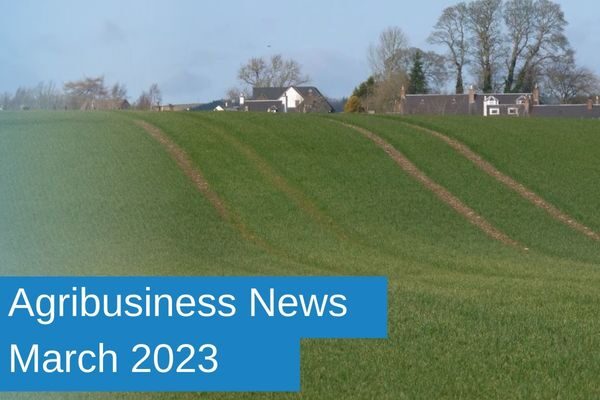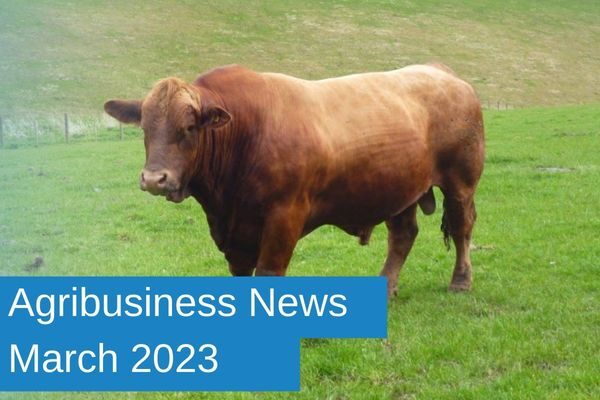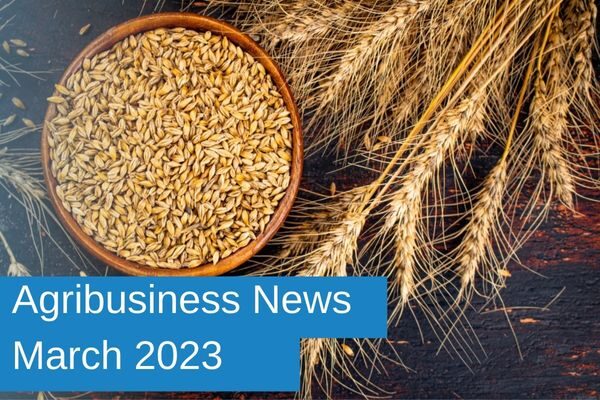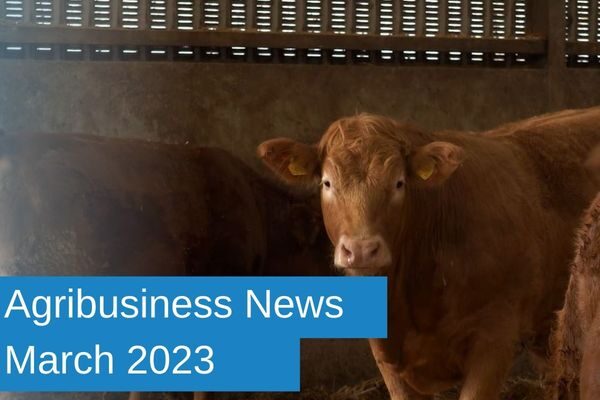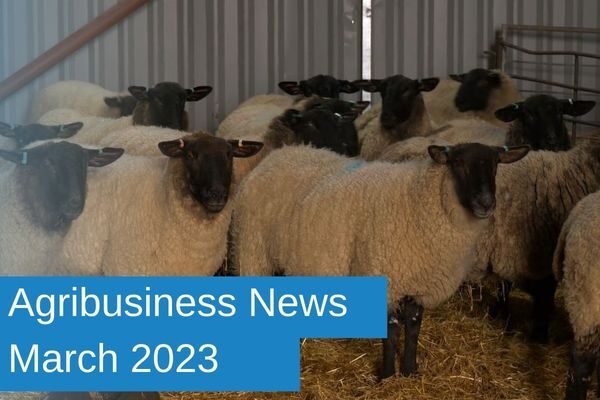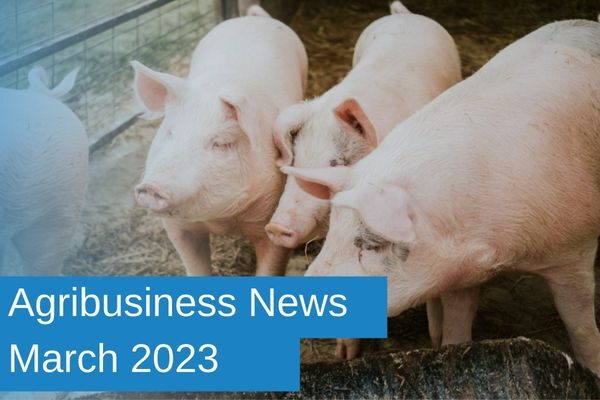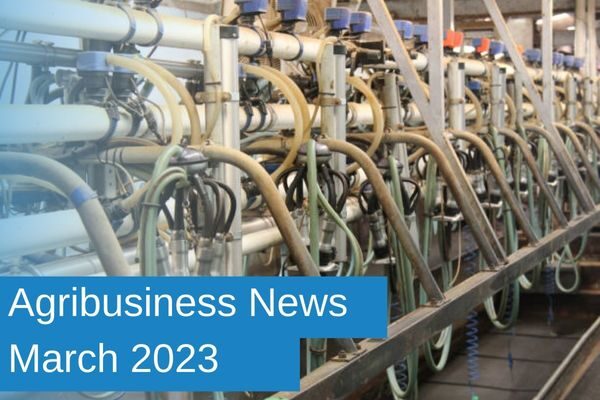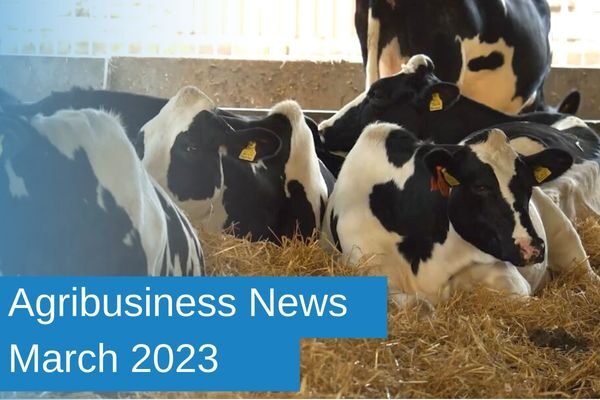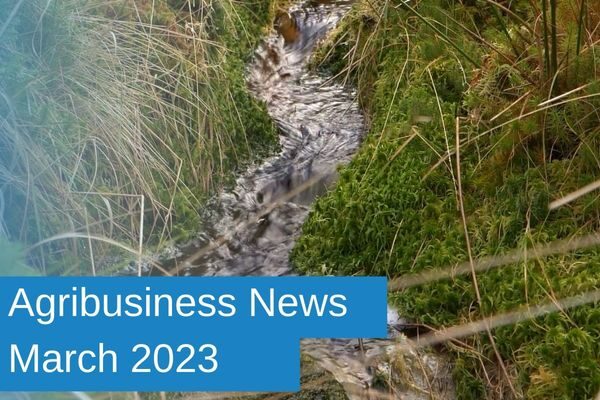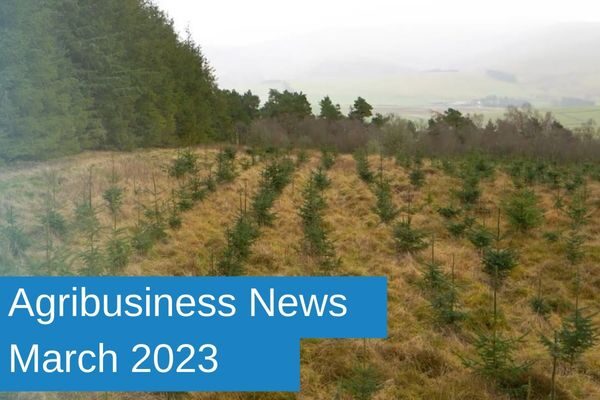Home > Publications >
Agribusiness News March 2023
Posted: Wednesday, 01 March 2023
Posted in Biodiversity, Nutrition, Climate Change, Grassland, Dairy, Beef Cattle, Nature Scot, Dairy Cattle, Arable, Sheep, Livestock, Pigs, Crops and Soils, Environment
Welcome to the March edition of Agribusiness News. If you prefer to download this document click the download button.
N e w s i n b r i e f
As we head into spring, while more than 50 years old, the Doug Larson quote “Spring is when you feel like whistling, even with a shoe full of slush” could be a viewed as a modern day metaphor. In the face of a winter full of economic slush in the form of rising bank rates, 10% inflation and the cost of living crisis; finding things to whistle or be optimistic about is proving a little more challenging. Especially, with the expectation that the bank base rate will rise by 0.25% to 4.25% on the 23rd of March.
From an Agri Business perspective, the optimism bag is definitely mixed depending on which sector you are in. While milk and sheep prices have started to slide after record highs, beef prices continue to climb linked to tight supplies and higher demand by English buyers for store cattle. And while recent prices rises in the pig sector have given pig farmers a much needed lift; further price rises are needed to restore profitability. However, in the face of falling fertiliser prices, some farmers are regretting their decision to buy early but getting their fingers burned two years in a row, just wasn’t an option.
While there will be a shuffling of shoes on the political front, to help land managers plan ahead; the Scottish Government has published its Agricultural Reform Roadmap which sets out the timetable for changes to farming and environmental policy between now and 2027. While the existing support will continue as expected in 2023 and 2024; new conditionality and new tiers of support will be brought in from 2025 onwards. The recently introduced Animal Health and Welfare Intervention Funding will provide livestock farmers with funds of up to £750 in 2023; the aim being to encourage livestock keepers to enhance the health and welfare of their flock/herd, which in turn, aids efficiency of production, resulting in lower greenhouse gas emissions per kg of output.
On a lighter note, please take time to dip into the Peatland Restoration article by James Banks; the benefits of looking after our peatlands is definitely something to whistle about.
Next month:
- Northern Ireland Protocol Update
- Seasonal Workers

This month’s editor – Christine Beaton
